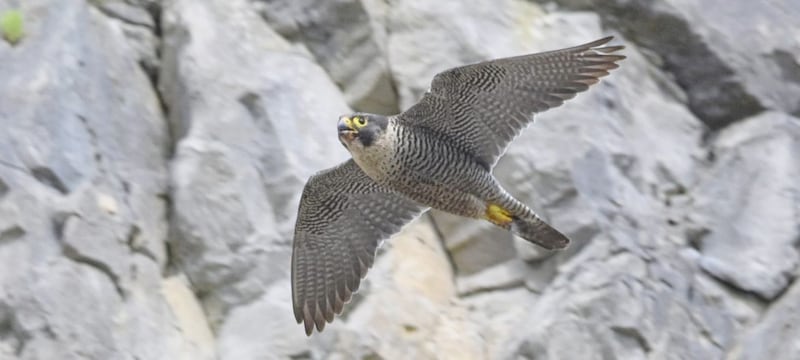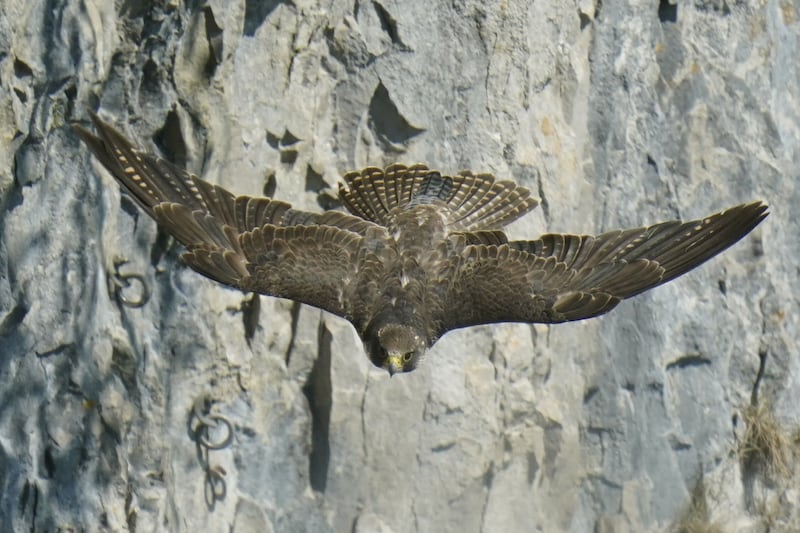A PROTECTED bird species is thriving at a quarry in Co Tyrone.
Peregrine falcons are being raised at the site of manufacturer Acheson and Glover (AG) in Fivemiletown.
The quarry owners have been praised for their "fantastic conservation success story", which has seen 50 peregrine falcons raised over a 23-year monitoring period.
Last year another three chicks were born to the 'Fivemiletown falcon pair' at the site.
The process began in 1996 when the Northern Ireland Raptor Study Group (NIRSG) first became aware of the species on site and requested to conduct annual surveys.
NIRSG praised the measures taken by AG, as part of a six-figure biodiversity programme.
A NISRG spokesman said: "This site has been one of the most successful sites in Northern Ireland and has been pivotal in the recovery of the species in the greater Lough Erne region with over 50 young raised during the monitoring period.
"A fantastic conservation success story."
Peregrine falcon numbers suffered a catastrophic fall in recent years, due to the chemical pesticide DDT, which was being absorbed into the bodies of their prey.
Ed O'Hara, conservation manager at AG, said "championing biodiversity is of primary importance" to the company.
"We're extremely proud of our peregrine falcon family and were delighted to be part of this decades long programme, since the birds first appeared in the quarry," he said.
"Our quarry managers and the conservation team ensure all employees are aware of the nest area and keep activity and noise levels to a minimum, especially during breeding season (March-July).
"That being said, the birds have become acclimatised to their environment very well and the breeding success of recent years is testament to that.
"We have a long history of protecting the wildlife we work alongside to uphold the natural ecosystem.
"We're well aware of the importance of being a good neighbour, not just to humans, but to our native animals too."
Peregrine falcon facts:
The most common prey for peregrine falcons is other birds. In fact, other birds make up 77% to 99% of their diet.
Peregrine falcons are found worldwide, except for rainforests and cold, dry Arctic regions.
Peregrine falcons migrate long distances between breeding and winter ranges.
It typically takes 3 years for the young to reach adulthood and be able to breed.
Most peregrine falcons (60%) do not survive their first year. Those who do have an average lifespan of 13 years.
(Source: Biokids)









